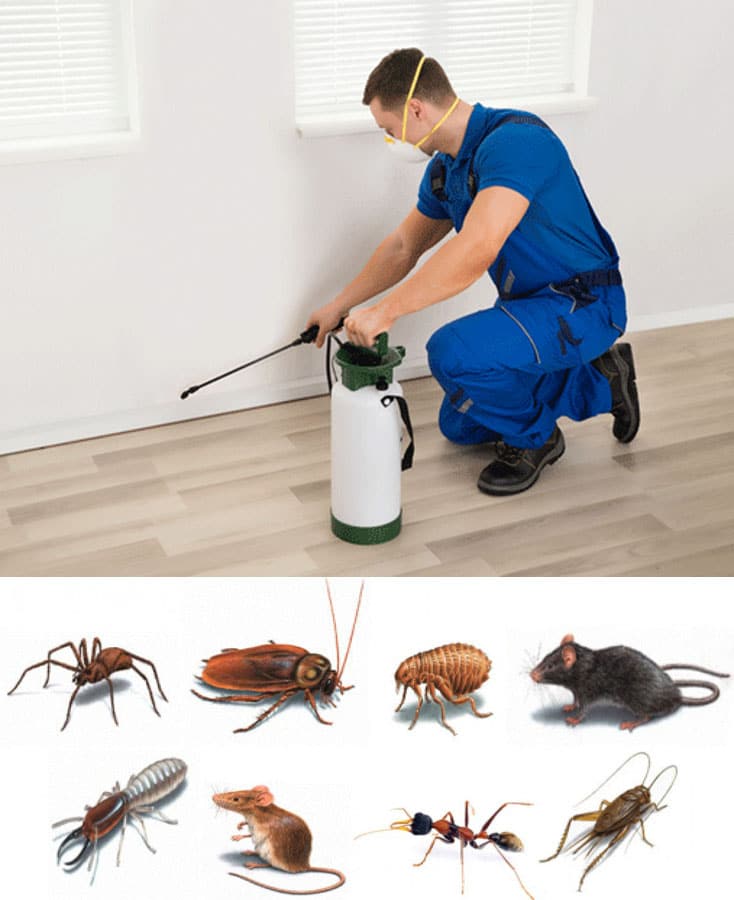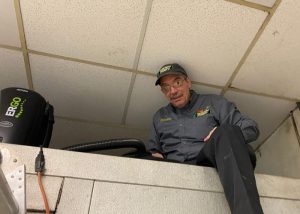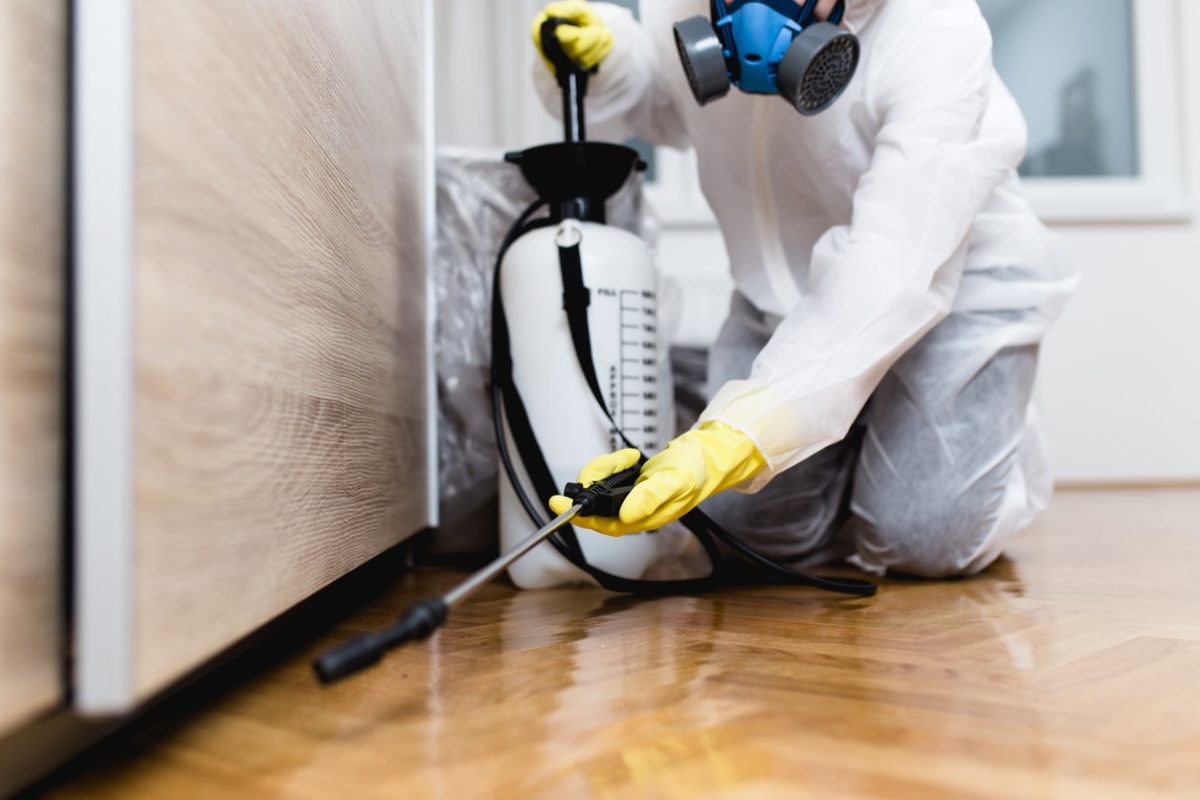Complete Pest Control in Port Charlotte for seasonal protection.
Complete Pest Control in Port Charlotte for seasonal protection.
Blog Article
Exploring Ingenious Methods and Products for Effective Bug Control
The landscape of parasite control is evolving, noted by the development of innovative methods and items developed to boost effectiveness and sustainability. From clever catches geared up with sophisticated monitoring systems to organic techniques that utilize all-natural predators, these innovations present a standard shift in how we approach pest administration. Additionally, eco-friendly chemical options and scent disruption strategies provide targeted remedies that align with ecological stewardship. As the sector comes to grips with these developments, a closer examination exposes not just their implications yet additionally the possible challenges that might develop in their implementation.
Smart Traps and Keeping An Eye On Systems
Just how can modern innovation enhance bug monitoring? One considerable development is the growth of smart traps and checking systems, which give real-time information and analytics for efficient insect control. These systems utilize sensors and wireless technology to identify pest task, signaling residential property managers and pest control experts to invasions prior to they escalate.
Smart traps are equipped with attributes such as bait terminals that draw in insects and record them effectively. These traps can be monitored remotely, enabling prompt interventions and lessening the demand for extensive chemical applications. The assimilation of device knowing algorithms enables these systems to differentiate in between target bugs and non-target species, boosting the accuracy of pest control actions.
Furthermore, the information collected from wise traps can be examined to identify patterns in pest actions and environmental variables adding to infestations (Pest Control in Port Charlotte). This information is important for developing targeted parasite monitoring approaches tailored to certain environments. By embracing wise catches and checking systems, parasite control professionals can improve their functional efficiency and decrease the environmental effect of pest monitoring, inevitably bring about safer and more lasting methods in the sector
Organic Bug Control Methods
Utilizing natural killers and parasites, organic pest control methods provide an eco pleasant choice to chemical therapies. This strategy involves the intro or enhancement of specific microorganisms that can naturally regulate pest populaces, consequently reducing dependence on artificial pesticides. Usual examples include using ladybugs to control aphid invasions and parasitic wasps to target caterpillars.

Biological control can be categorized right into three main methods: timeless, augmentative, and preservation. Classical biological control entails importing natural adversaries from the parasite's indigenous habitat, while augmentative control involves boosting the population of existing natural opponents through releases. Conservation methods focus on producing conditions that sustain these beneficial organisms in the ecosystem.
It often calls for a detailed evaluation of parasite characteristics and the life cycles of both the bugs and their natural opponents. As understanding of ecological concerns expands, organic pest control methods are progressively recognized for their lasting role in integrated pest management programs.
Eco-Friendly Chemical Alternatives
Eco-friendly chemical choices provide a practical solution for insect monitoring that decreases ecological effect while efficiently managing parasite populations. These choices are useful source obtained from natural sources and are carefully created to target specific parasites without harming valuable organisms, making them a necessary element of sustainable bug control techniques.
Amongst one of the most effective environmentally friendly options are plant-based pesticides, such as neem oil and pyrethrin, which are stemmed from the seeds and blossoms of various plants. These substances interfere with the life process of pests, lowering their populaces without the harmful results related to more info here traditional chemicals - Pest Control in Port Charlotte. Additionally, vital oils like peppermint and clove oil display repellent buildings, even more enhancing their utility in insect administration

In addition, environment-friendly chemical alternatives frequently break down extra quickly in the environment, lowering the danger of dirt and water contamination. This particular aligns with the boosting consumer need for lasting practices in agriculture and city bug control. As research study proceeds to breakthrough, the growth of innovative green formulations will certainly better enhance efficiency and broaden application locations, making it possible for pest monitoring specialists to embrace greener, much more responsible methods in their practices while protecting human health and the atmosphere.
Pheromone Disturbance Strategies
An additional ingenious technique in lasting bug management is using scent disruption strategies. These techniques manipulate the all-natural chemical signals, or pheromones, that bugs utilize for communication, especially in read the full info here mating actions. By disrupting these signals, parasite populaces can be effectively taken care of without resorting to unsafe chemicals.
Pheromone catches are generally used in this method. Over time, this can lead to a considerable decline in bug populaces.

Integrated Parasite Administration Techniques
Reliable bug control often needs an extensive technique, and Integrated Bug Monitoring (IPM) techniques give a structure for achieving this goal. IPM incorporates various administration techniques to lessen insect populations while decreasing dependence on chemical pesticides. This complex technique begins with thorough surveillance and identification of pests, enabling targeted treatments based upon details bug stress.
Social methods, such as crop turning and sanitation, play a crucial role in protecting against insect facility. Organic controls, including all-natural predators and parasitoids, are utilized to keep insect populations at convenient levels. When necessary, careful chemical therapies are used, highlighting reduced toxicity to non-target types and the environment.
Furthermore, education and learning and outreach are indispensable parts of IPM, advertising understanding amongst stakeholders regarding lasting methods and pest life cycles. The versatility of IPM allows professionals to react efficiently to altering pest dynamics and environmental problems. By employing this alternative strategy, IPM not only boosts parasite control efficiency but additionally adds to lasting eco-friendly equilibrium. Inevitably, Integrated Bug Monitoring stands for a forward-thinking service that lines up agricultural performance with environmental stewardship, making it vital in modern pest control strategies.

Verdict
In verdict, the integration of ingenious strategies and items for reliable insect control represents a substantial development in lasting parasite administration. Smart catches and checking systems, biological insect control techniques, environmentally friendly chemical options, and pheromone disturbance strategies collectively improve the performance of parasite management techniques. By embracing these strategies, the dependence on traditional chemicals can be reduced, promoting environmental wellness while guaranteeing reliable pest control. Continued r & d in these locations will certainly better improve insect management practices.
Report this page